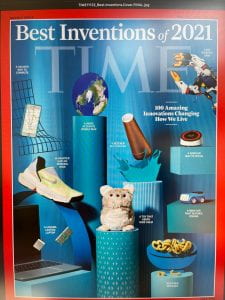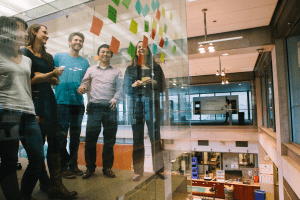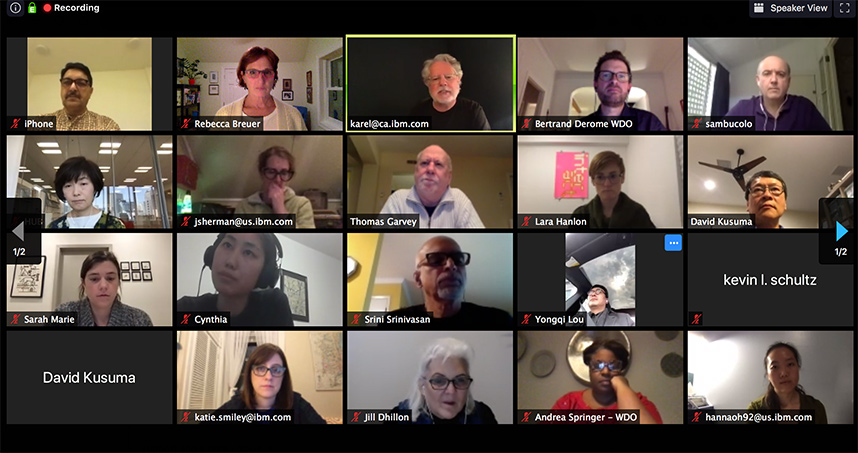Time magazine selected Sproutel’s “Purrble” as an invention for 2021 (along with the COVID-19 vaccine). Sproutel started at Design for America’s Northwestern campus.
“During the pandemic, countless children have been isolated at home and distressed as their lives and routines were abruptly disrupted. For some, Purrble ($49.99) came to the rescue. An interactive plush toy equipped with seven sensors that respond to touch, Purrble’s haptic heartbeat speeds up to 135 b.p.m. when it senses somebody’s playing with it. Kids can then comfort their companion with gentle petting, slowing Purrble’s vibrational heartbeat to a purr—calming themselves as well in the process. Developed using research from the Committee for Children, a nonprofit and global leader on social-emotional learning, the device aims to help children learn to regulate their emotions. Preliminary research shows that Purrble is doing just that: in a study with 20 families, 19 parents reported that the toy helped their kids calm down when they needed to. “I grew up with a chronic illness as a child and would have loved to have this,” says Aaron Horowitz, CEO of Sproutel, which designed the toy. ” —Paulina Cachero
https://time.com/collection/best-inventions-2021/6113137/purrble/


